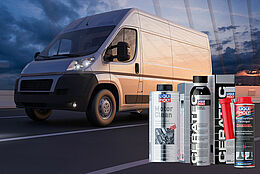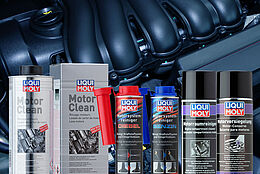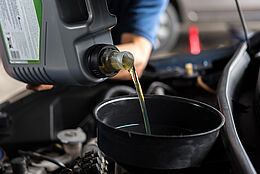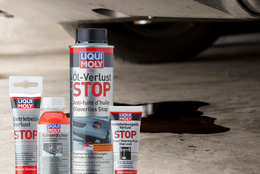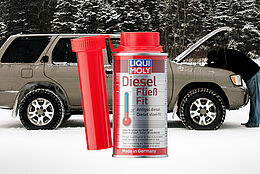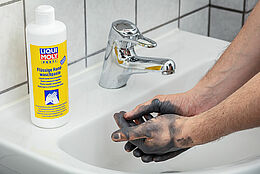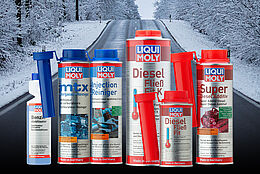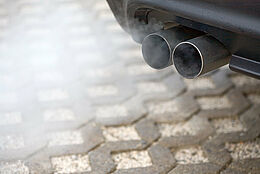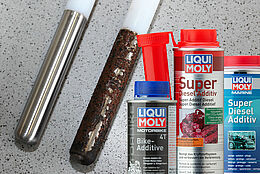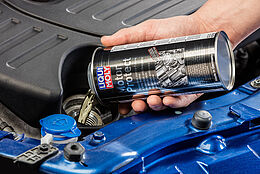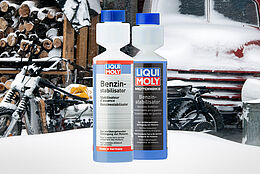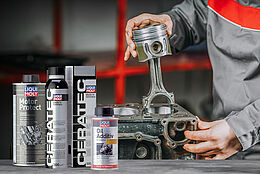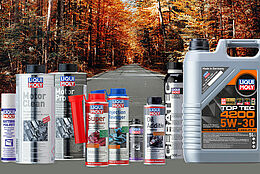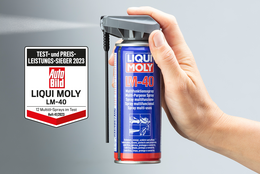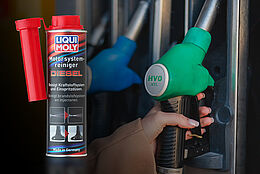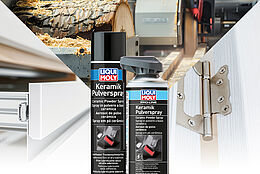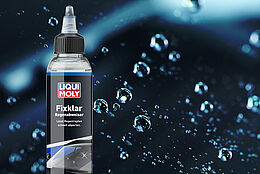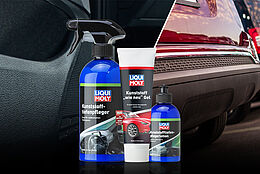- 4min
Unwanted bacteria in the tank? Diesel bugs? Clogged diesel filters?

Whether in agricultural machinery, construction machines, transmissions, commercial vehicles, motor homes or simple storage tanks, diesel bacteria tend to form where diesel fuel is stored in a tank for an extended period of time. Do you have a diesel vehicle that has not been used for a long time, is not used much, has been taken out of service, or is only used at certain times of the year? Then be careful!

How do diesel bacteria develop?
Modern diesel fuels are complex mixtures of a number of flammable liquid substances. They also contain a significant proportion of biodiesel.
Over time, the biocontent in the fuel can cause microorganisms such as bacteria, yeasts and fungi to form in the tank and create a kind of sludge. This happens, in particular, when the fuel has a high water content due to moisture or condensation in the tank.
What consequences can diesel bacteria have for your vehicle?
Contamination in the fuel system can lead to biocorrosion, which is not great.
It is worse if the fungal and bacterial sludge clogs the diesel filter. This leads, in the first instance, to the vehicle having a reduced power output. If the filter then becomes completely clogged, the engine will not run at all. And that can happen faster than you think.
However, the worst or most critical thing that can happen is the microorganisms being deposited in the injectors and so paralyzing the injection system. These injection system failures can lead to severe engine damage. The symptoms of this are, among other things, the engine not running smoothly, or the vehicle jerking or emitting unusual smoke.
Whatever the situation, quick action is required!
What should I do if the diesel bacteria have already spread?
If the engine has already started malfunctioning, it is too late. The injection system will need a full clean and various components such as pumps or injectors may need to be repaired as required.
As always, prevention is better than cure!
The best solution is to run the vehicle regularly. If the vehicle has to be parked up for a longer period of time, it can help to completely empty or fill the tank. This reduces the formation of condensation in the tank. But there is no guarantee that this will stop the diesel plague spreading!
To be on the safe side, use an anti-bacterial diesel additive. Even a low dose optimally prevents the formation of fungi and bacteria and is considerably cheaper than complex repairs, cleaning the engine system or refueling with premium diesel fuels. Even the premium fuels offered at many filling stations, cannot guarantee that they do not contain any traces of biodiesel.
The anti-bacterial diesel additive also serves as corrosion protection. It keeps injection nozzles clean and, thanks to the cetane booster, increases the ignition quality of the fuel. This means that your vehicle will start up again without any problems (and of course without bacteria) even after a long period of non-use.

Our expert tip for decommissioning diesel vehicles
"After adding the additive, drive the vehicle around a little more. This will help the additive to also pass through the filter, the pipes and the entire system. All components, including injectors and pumps, will then be protected by the preserved diesel."
David Kaiser
Head of Research and Development

